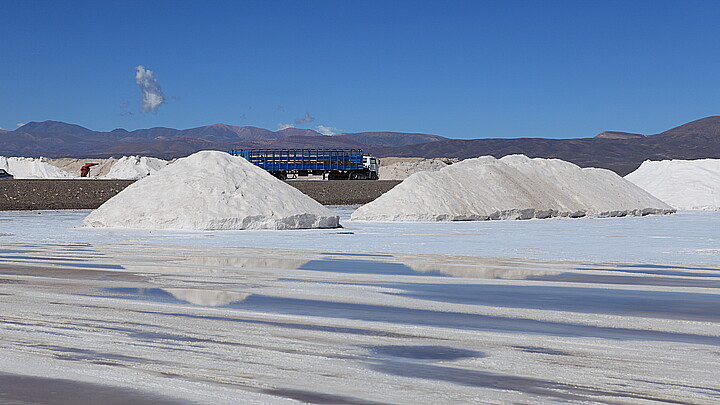Business
Chile's inflation soars to highest level in 15 years
The unexpected figures were a surprise to economists and analysts have warned that they will likely push the central bank to continue with its aggressive monetary tightening cycle after lifting its key rate by the most in over 20 years last month
February 8, 2022 4:33pm
Updated: February 8, 2022 5:50pm
Chile's Consumer Price Index (CPI) rose by 1.2% in January, while the annual inflation rate climbed to 7.7% -- the highest figure in almost 15 years, the national statistics institute reported on Tuesday.
The unexpected figures were a surprise to economists and analysts have warned that they will likely push the central bank to continue with its aggressive monetary tightening cycle after lifting its key rate by the most in over 20 years last month.
The rising figures are a blow to lawmakers who find the prospect of getting inflation back to Chile’s 3% target increasingly difficult, after already having raised borrowing costs by 500 basis points (up to 5.5%) since July, Bloomberg reported.
This will be especially challenging for Gabriel Boric’s incoming administration, already plagued with popular unrest and increased terrorist violence in the country’s southern most regions.
Luckily, Boric announced last month that he was appointing central bank chief Mario Marcel to be his administration’s finance minister.
A technocrat through and through, the Cambridge-trained economist previously held positions at the World Bank, the Interamerican Development Bank and the Organization for Economic Cooperation and Development.
“Inflation pressures are running wild,” said Andres Abadia, chief Latin America economist at Pantheon Macroeconomics. “The central bank likely will continue to withdraw monetary support” and raise the key rate to at least 7%.
Felipe Hernandez, a Latin America economist with Bloomberg noted that there were several factors that may have pushed inflation to higher-than-expected rates in January.
“Higher-than-expected Chilean inflation in January points to lingering pressure from supply shocks, strong domestic demand and accumulated currency depreciation. It adds evidence that earlier gains are spilling over to prices of other goods and services. The surprise is likely to push up inflation expectations,” he noted.
But the rise in consumer prices will surely be a thorn in the side of Chileans who have faced financial uncertainty in recent months as markets reacted to electoral uncertainty and lingering COVID-19 fears.
The 1.6% rise in cost of goods ranging from food to clothes represents the biggest monthly increase since at least 2010. Similarly, transportation costs rose by 2.8% -- which is notable considering the 2019 protests first started after the government implemented a minor increase in metro fares.







